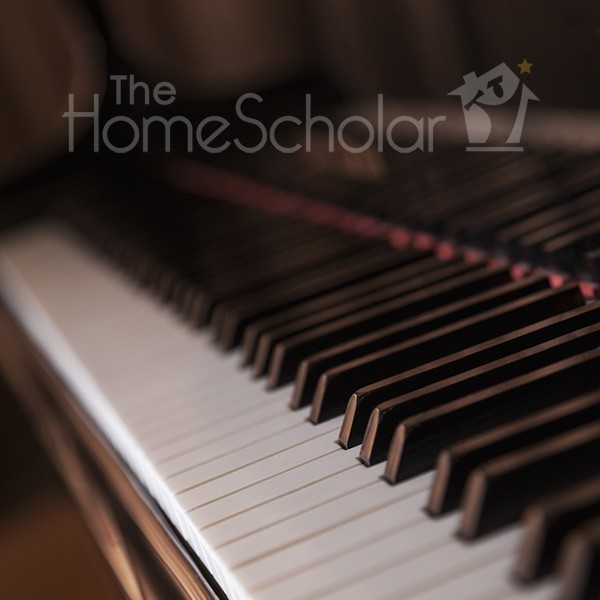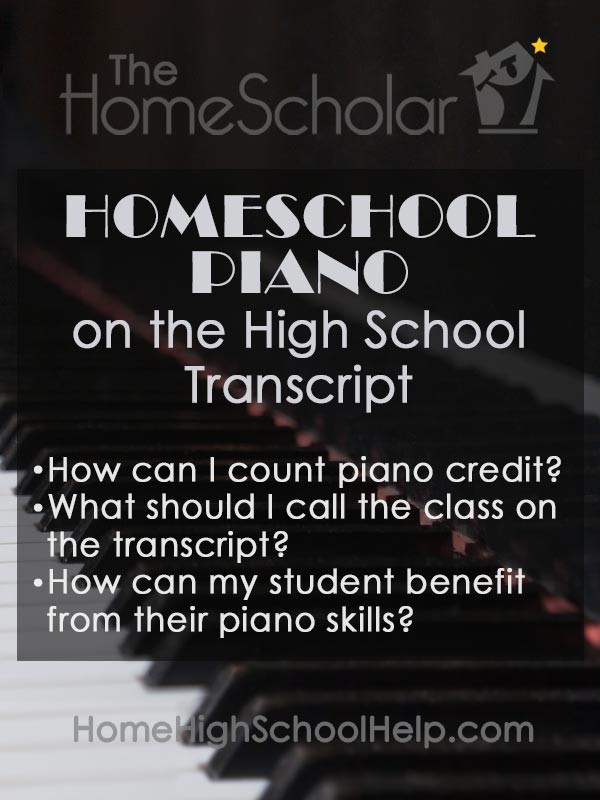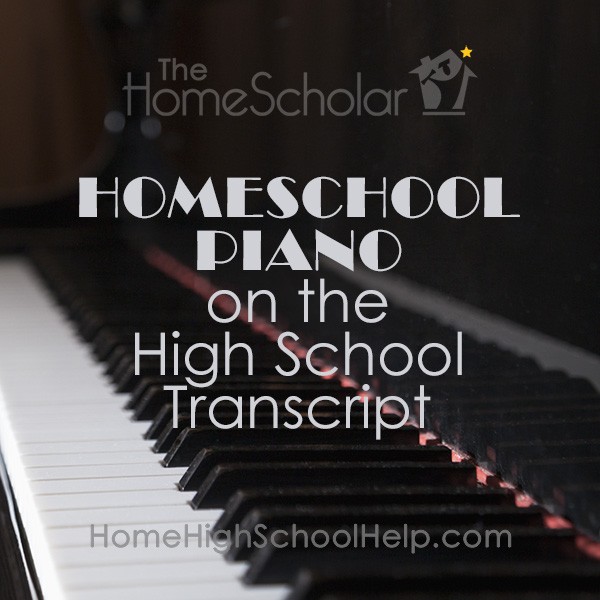Homeschool Piano on the High School Transcript
You can give high school credit for piano, whether your child has a piano teacher and received a formal piano education, or plays for fun. Learn how to put piano on your high school transcript so you don't miss including an important class.
Homeschool Piano Credit
At the advanced level, some students take even more time practicing the piano. Like math class, the more advanced you get, the longer the practice time must be. When a child practices piano for two hours a day, it usually indicates that they're at a fairly advanced level, but they still earn only one credit of piano per year.
A student can have more than one music credit, too. If your child has different musical experiences, such as playing the piano and singing in a choir, then you could have two credits of music on the transcript for a single school year. One piano credit and one choir credit.
Class Titles for Piano
So many options. So few rules. You get to choose! Here are some options.
You could just say "Piano" each year, with no numbers attached to it at all: "Piano."
You could call the class beginning, intermediate, or advanced: "Beginning Piano."
You could use the grade number for the class title: "Piano 9" taken in 9th grade.
You could use the year in high school for the title; "Piano 1" taken in 9th grade.
You could use the number of years of practice: "Piano 7" after 7 years of practice.
You could use Roman Numerals for added fun: "Piano IV"
Bottom line: there is no right or wrong answer, so you can do what you want to do. In fact, I did a quick check of some schools to see what they call their classes, and here is what I came up with.
High schools have a variety of titles they use for a piano class. It's interesting to think about these being taught in a classroom setting. I'm so thankful my shy child, less gifted in music, didn't need to take piano in front of other children.
These are the class titles some schools use:
North Attleboro High School: "Piano Class"
Nicolet High School: "Beginning Piano" or "Intermediate Piano"
Brevard Music Center: "High School Piano"
UNC Chapel Hill calls high school classes: "Group Piano IV" or "Group Piano V"
Universities also have a wide range of titles. I found this one amusing from Eastern Kentucky University.
MUS 109: Introductory Class Piano
MUS 110: Beginning Class Piano I
MUS 111: Beginning Class Piano II
MUS 112: Piano I
For this university, introductory comes first, then beginning, and then the students have finally achieved the esteemed class title of "Piano 1."
When naming piano classes, there are few right or wrong answers. You get to choose! Knock yourself out! Feel the power! You are the homeschool parent!
Music Scholarships and Work Study
Sometimes a music scholarship may have relatively low monetary value, with a huge work commitment. Comparing the hours required and the benefit, it may resemble a work study program earning far below minimum wage. Sometimes a music scholarship may not be worth it at all.
If you are thinking about a music scholarship, make sure you take a tour of the campus. My son chose our university, in part, because it had a grand piano in every dorm and almost every building. Music students need to spend some time looking at the music labs. If you had a science major you would focus on the science labs, and these are just like a science lab that you have to look for and evaluate. Even when using it "just for fun" those pianos can be important to kids!
When you subscribe to the blog, we will send you an e-mail when there are new updates on the site so you wouldn't miss them.

 Login
Login









.jpg)

Comments